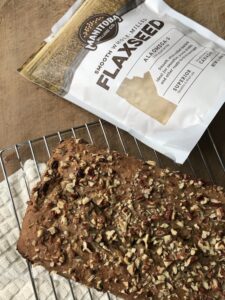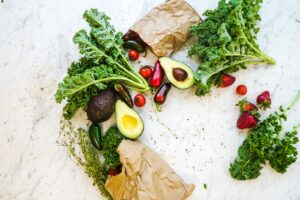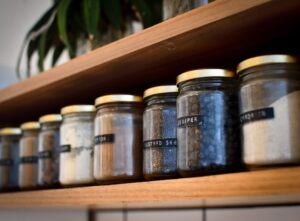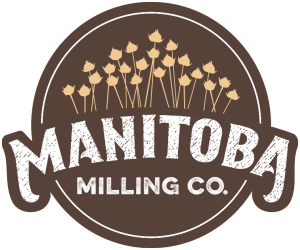Gluten and Celiac Disease: The Basics + Recipes
By now, you’ve probably seen the words “gluten free” on everything from cereal to toothpaste. The more you see products advertising against gluten, the more you may feel resistant to it. What even is gluten — and is it safe to eat? Do I have celiac disease — or does someone I love have it?

A market trending towards gluten-free everything can be a confusing one. In celebration of Celiac Awareness Month, we’re here to demystify gluten and get to the truth behind why our whole-milled flaxseed is gluten free.
Table of Contents
ToggleWhat is gluten?
Gluten is a protein naturally occurring in wheat, rye, and barley (1). Products may not always have these exact ingredients listed but may still contain gluten. Other products are processed in the same facility as gluten-containing products which can lead to cross contamination. Gluten-containing ingredients can also go by other names such as durum, emmer, semolina, spelt, malt, brewer’s yeast, and triticale (2).

Learn more about gluten free cooking swaps here!
What is Celiac disease?
Celiac disease is an autoimmune disease in which the body creates an immune response to gluten and stages an attack on the small intestine. Over time, this immune response can deteriorate the lining of the small intestine that helps absorb nutrients. As a result, the more damaged this lining becomes, the less efficient the body is at absorbing nutrients.

Common symptoms of celiac disease include constipation, bloating, nausea, vomiting, and abdominal pain (2). Left untreated, celiac disease can lead to a host of other health conditions, so it’s important to intervene early, if possible (1).
Researchers are still working to identify causes of celiac disease, but research indicates certain gene variants are correlated with incidence of celiac disease. The diagnostic process typically looks like a screening of your medical history, a physical exam, and other various tests before proceeding to diagnostic blood tests and small intestine biopsies (2). If you are concerned about any allergies or intolerances, you may want to make an appointment to see your doctor to see which next steps are right for you.
Learn more about how you can care for your GI tract with flaxseed here!
How does Celiac disease affect me?
If you have Celiac Disease:
Standard celiac treatment is adhering to a gluten free diet to suppress the autoimmune response. People with celiac disease can benefit from meeting with a registered dietitian to learn how to eat balanced meals and snacks without encountering gluten. These professionals can walk you through finding alternatives to your favorite gluten-containing meals and can warn against products that may contain gluten such as cosmetics and toothpaste (2).

If you know someone with Celiac Disease:
Celiac disease is a serious medical condition and those affected have no control over how their bodies respond to gluten-containing foods. If you are preparing a meal for someone with celiac disease, be careful of possible cross contamination. You can help by researching to make sure you aren’t using any sneaky gluten-containing ingredients (1), or check out our gluten free recipes below.
Try out our Flaxseed Meatball and Veggie Soup if you’re looking to feed a crowd. Swap in gluten free pasta or skip the pasta altogether!
Is there gluten in your flaxseed?
Whether you have celiac disease or not, you can rest-assured our whole-milled flaxseed and flax beverages are gluten free, and our flaxseed is processed in a facility free of gluten. While our flax beverages are processed in shared facilities, every effort is made to ensure that no gluten comes into contact with our products. Please contact us if you would like to learn more.

We have plenty of recipes naturally free of gluten. We also know plenty of ways to make simple swaps with recipes to make them gluten-friendly. Check out these recipes and let us know your favorite by tagging us @manitobamilling:
Breakfast
Main Course
Sides
Snacks
Dessert
- Gluten Free Peach Crumble
- Peanut Butter Banana Nice Cream
- Apple Crumble
- Easy Peanut Butter Cookies
- Chocolate Peanut Butter Clusters
- Easy Freezer Fudge
Sources
Disclaimer: This is not medical advice or instruction to follow a gluten-free diet. Please consult with your doctor and a registered dietitian before making changes to your food patterns or while eliminating any foods from your diet.
